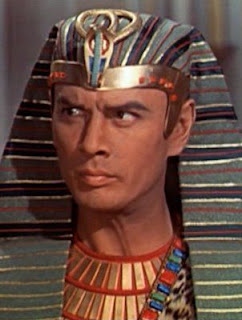Putting the faith of Abraham to the test.
The
Second Sunday
in Lent
Year
B
Romans
4:13-25
Do
things happen the way that they must? Must
things be the way they are? We are used to seeking out necessary causes
for things. What are the necessary
causes of bad things? How might we ferret
out and neutralize those necessary causes to prevent bad things from
happening? What are the necessary causes
of good things? How can we recreate those
to make sure that more good things happen?
Give us some control, at least.
We
would avoid magical explanations. Believing in magic risks bringing us back to a
world of leeches, gnomes and fairies. We
had centuries of that. We’ve had a belly
full, in fact.
Faith
remains the opposite of certainty for many of the people we know. We know people who are stuck and can’t move
forward. We may feel that way ourselves. Faith is a hard case to
argue to poor people or unfortunate people or excluded people or condemned
people who would like nothing more than a certain path forward or, at least, a damned good reason to put up with the way the chips have fallen.
It’s what Saint Paul does, though. He says that the best thing – the only thing – we have in hand is this
diaphanous, invisible thing called faith and that it holds the key to what our
lives will look like. Faith in God has gotten people up from
where they’ve fallen, it has brought them to where they have no necessary right to be. It builds community where there should be enmity
between factions. It removes condemnation. It sets us among the
saints. It's a thing.
Paul
begins with a bit of history. "Abraham", he
says, "is the father of us all". It might
not be clear to every modern reader the extent to which these are fighting
words. There are some who were listening
to St Paul, or reading the letters which he wrote, who would have said:
I
am part of the family of Abraham because of my name, my lineage and my
childhood religion. This man or woman
sitting next to me here on the park bench, however, is not of the family,
because this person is a Greek or a barbarian. I am a Jew.
I am necessarily one of Abraham’s
children. I am a son or daughter of
Abraham because I must be. I was born to
it.
Paul
throws a wrench into this implied necessity: things are not the way they must be -
they are the way they could be when men and women believe that
God will do what he says he will do.
We
are all children of Abraham when we do what Abraham did which was:
·
to hear what God promised,
·
to take stock of his own inability to perform
that promise on God’s behalf, and
·
to believe that God would, himself, accomplish
what he promised.
We are being asked to believe - to believe that we can be a part of God’s
family and can find a place in his Kingdom in spite of who we know ourselves, in
our weakness, our exclusion and our sinfulness, to be. And there is abundant evidence in the family of faith that the barriers begin to drop, not when the conditions become optimal again, but that life regains its fluidity
because God has promised
and the human person has taken the risk of believing again.
Believe it? Put it to the test.


